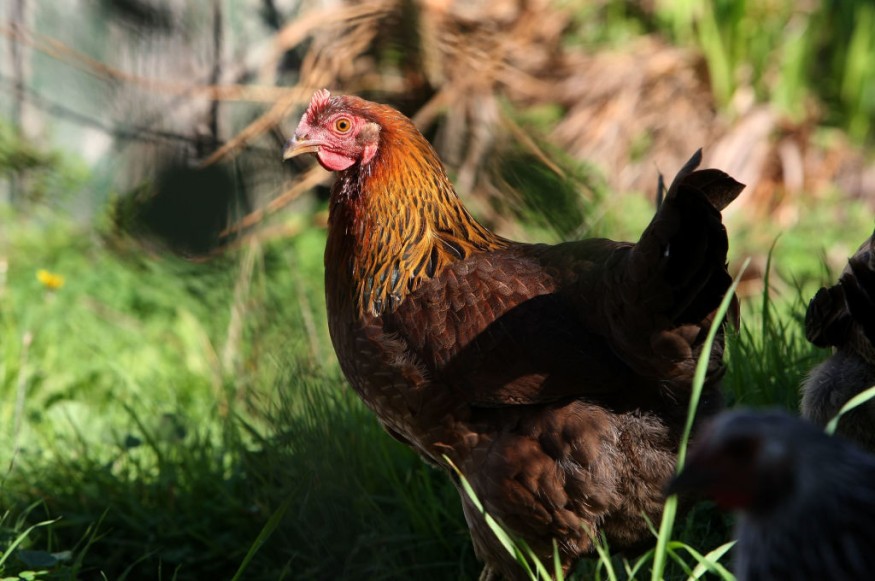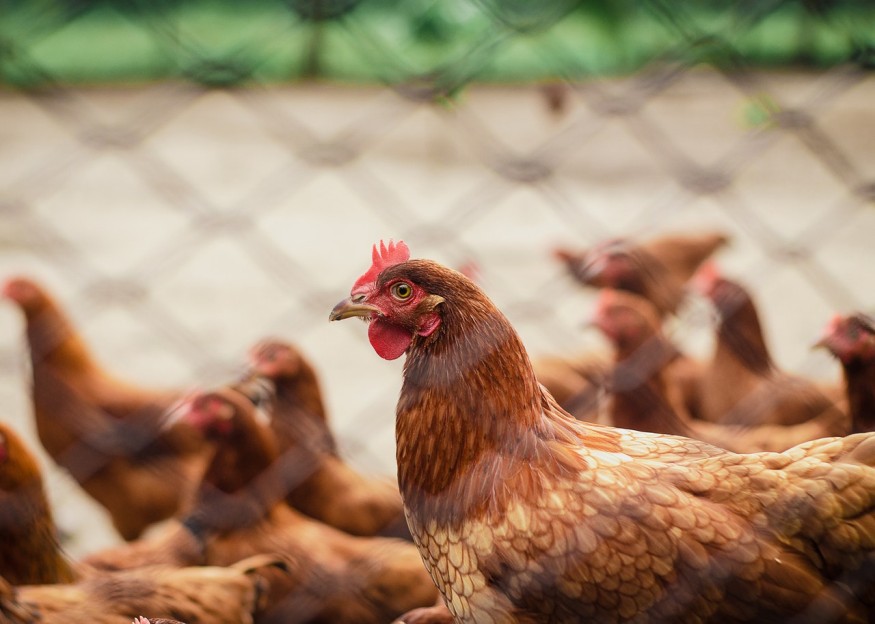According to a Guardian investigation, a significant contract to supply poultry to Tesco from over ten years ago may be responsible for the ecological decline of one of the UK's favorite rivers.

Chicken Pollution
The so-called chicken capital of the UK, where an estimated 20 million chickens are raised in the river's watershed, is where the River Wye passes as it runs through mid-Wales to the Severn estuary.
Although chicken manure from an increasing number of intensive poultry farms also plays a significant impact, human sewage and wastewater have received the most criticism for their contribution to the pollution of our waterways.
Bird excrement, high in phosphates and used as a fertilizer to promote crop development, is scattered along the Wye. Still, the soil can no longer support the quantity of manure applied there, and the runoff is turning the river into what environmentalists call "pea soup."
Scientists at Lancaster University have identified chicken waste as one of the principal sources of phosphorus pollution in the Wye watershed, which results in the "pea soup" algal blooms.
Chicken Deal
Herefordshire, where the number of chickens started to surge in the early 1990s, is the hub for chicken farming in the Wye region. Then, in 2013, Tesco, the largest retailer in the UK, awarded Cargill, which operates a sizable processing facility in the area, a contract to provide more chicken.
A £35 million extension of Cargill's Hereford factory to increase the number of chickens it could process was announced around the same time.
According to a Guardian study of publicly accessible data, the two incidents appeared to be the catalyst for an upsurge in the number of new chicken shelters constructed in the neighborhood.
In Herefordshire, there were 22 applications to construct intensive poultry units (IPUs) in 2014, 14 of which were for broiler chickens. This increased to 1.4 million birds annually on farms in the county.
Bird Population

The county's bird population rose by more than one-third between 2013 and 2017, from 13 to 18 million, as the scale of what was already a center for intensive poultry raising got even greater.
Paul Withers, professor of catchment biogeochemistry at Lancaster University, said, "You can without a doubt state that it [the significant rise in chicken numbers in 2014] will have had an impact."
"The huge rise in the quantity of animals has led to a long-term issue by greatly increasing the phosphorus loading on the land area in the Wye basin. This persists in the soil, raising the possibility that phosphorus will be washed into the water every time it rains. It will take decades to reverse the damage to river water quality since soil phosphorus levels fluctuate slowly.
The majority of the 18 million chickens in Herefordshire are produced by Avara Foods, which Cargill and other partners jointly hold. This company is currently the third-largest poultry producer in Britain.
One planning expert who processed a large number of the additional shed applications claimed that Cargill's need to fill greater orders was the reason for the area's considerable development from 2013 onward.
According to a land agent who handled requests to build new sheds, "I think the difficulties we've got in this area of the globe were all generated by putting far too many in at the same time," she said in an interview with a Ph.D. researcher Alison Caffyn. "The work they promised to conduct for Tesco caused a little PR catastrophe."
"It would be incorrect to claim that any one customer would influence company transformation to the degree that is being suggested," an Avara Foods spokeswoman stated.
Environmental Consultation
According to Helen Hamilton, a planning and environmental consultant who has worked with anti-IPU advocacy groups for ten years, the Herefordshire council could not comprehend the long-term effects of Cargill's expansion. It failed to consider the cumulative impact of so many birds and their waste in a tiny area.
According to Hamilton, "the knock-on impact in terms of adding more poultry units should have been evident." "This growth was a failed planning approach," said the analyst. "They had no strategic policy."
In May, the UK government rejected a request from MPs and environmental organizations to prohibit the construction of new and expanded IPUs in the Wye region.
In March, the Powys county council authorized an IPU that would house an additional 90,000 birds in the River Wye watershed, continuing the growth there.
According to Tim Bailey of the Environment Agency, the Wye River is currently in a "critical state" due to the quantity of poultry and cattle there.
The River Wye Nutrient Management Board's chair, Herefordshire councilor Elissa Swinglehurst, compared the situation to "trying to empty a bath with the taps running."
We will keep increasing the residual loading of the soil until we lower the phosphate flow into the watershed. The taps are still running full right now," she remarked.
According to a representative for Avara Foods, "We fully acknowledge the difficulties confronting the River Wye and are dedicated to contributing, in keeping with our larger aim to offer good, cheap food for millions of households, while continuously enhancing animal welfare and sustainability.
"Avara Foods does not spread trash on the ground, and none of the indoor farms we operate do not directly discharge water into the watershed. We require complete compliance with all laws governing litter management from every farm in our supply chain, and they all have waste management plans.
Council Doing Its Job
Herefordshire Council said it had previously been unable to analyze how new constructions would affect the River Wye accurately.
The council could guarantee that any upcoming agricultural projects will have a "nutrient neutral effect" thanks to the planning tool, they noted.
According to a Tesco representative, the company is "dedicated to doing our part, together with other players in the food business, to ensure the conservation of the River Wye."
Related Article : Over 20 Million Farm Animals in US Die Before Reaching Slaughterhouse Due to Horrific Conditions
For more animal news, don't forget to follow Nature World News!
© 2025 NatureWorldNews.com All rights reserved. Do not reproduce without permission.





